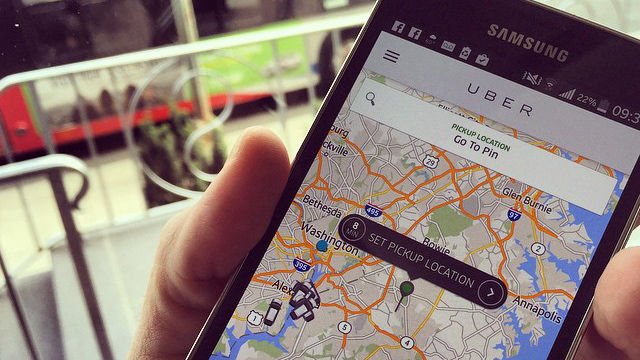
SAN FRANCISCO—Less than a week before a contentious trade secrets trial is set to begin, lawyers from Waymo and Uber squared off one final time in court on Tuesday morning.
US District Judge William Alsup told Waymo that its lawyers could not present projected financial figures for the self-driving car market, lest they influence the jury improperly. Rather, he wants the case to remain focused on the eight specific trade secrets at issue.
“So if we put big numbers out there, there’s a risk that the jury will fall for the big numbers,” he said, comparing it to patent cases. Such a ruling is potentially a large win for Uber if the company is ultimately found liable in the case.
Judge Alsup has some experience in this regard: he presided over the Oracle v. Google trial, where Oracle unsuccessfully sought billions in damages.
However, Judge Alsup will allow Waymo lawyers to show the jury Uber’s own documents of its “Project Rubicon,” which contain Uber’s own projections. Some of those documents will be introduced as evidence.
He also urged the two sides to agree on what should be a basic task: coming up with a simple timeline of the events of the case so far for the jurors. Prior to the Tuesday hearing, Waymo attorneys submitted their own timeline, which varies slightly from the one Uber had filed earlier. The judge warned that if the two sides couldn’t come together, he would publicly admonish the lawyers in front of the jury during the opening of the trial.
“Do you want me to start the trial that way?” he said. “You‘d better get this done. The jury will appreciate it.”
Waymo v. Uber began back in February 2017, when Waymo sued Uber and accused one of its own star engineers of stealing 14,000 files shortly before he left Waymo. The former employee, Anthony Levandowski, went on to found a company that was quickly acquired by Uber. Levandowski refused to comply with his employer’s demands during the course of this case and was fired. Uber has denied that it benefited in any way from Levandowski’s actions.
The outcome of the case will likely determine which company will end up ahead in the cutthroat and rapidly growing autonomous vehicle sector.
What’s at stake
Since the case began, Waymo, a division of Google’s parent company, Alphabet, has aggressively pursued its own cars—on Tuesday the company ordered thousands of self-driving minivans from Fiat Chrysler. Since last year, Waymo has been testing self-driving taxis in Arizona.
Uber seems to be playing catch up: it ordered 24,000 cars from Volvo in November 2017.
During the time that the case has unfolded, Uber has been bogged down by a change in leadership and now faces a federal criminal probe that resulted from this ongoing lawsuit. Under the new CEO, Dara Khosrowshahi, the company sustained a massive data breach in 2016 but kept it quiet until November 2017. (Separately, Uber faces numerous lawsuits as a result of this hack.)
Melissa Baily, an attorney representing Waymo, tried to convince Judge Alsup to allow the corporate giant to include financial projections at trial about the size of the self-driving car market.
“That’s what both sides believed: that they were competing for a pie and they perceived the pie to be large and that they perceived the race to be critical as to who was going to get the pie, and whoever was going to get it was going to get all or most of it,” she said.
But Judge Alsup didn’t budge and denied Baily’s efforts. He was concerned, he said, that if such large sums were bandied about during the course of the trial, it could be similar to patent cases, which can influence a large monetary award for the plaintiff.
“I do think it’s fair for background for witnesses on both sides to testify competently that they saw the self-driving car market as huge—that’s no problem—but they can’t say certain numbers,” he said.
The two sides also agreed that during opening arguments, some portion of the lawyers’ statements would be closed to the public, as a way to keep the precise nature of the crucial trade secrets hidden.
Jury selection
Given the complexity of the case, Judge Alsup also wanted jurors to have a few handouts to keep physically in-hand during the trial.
“One of the things that I think they ought to have is a handy-dandy list in the back of their pads… a list of alleged trade secrets,” he said.
Referring to an unredacted list that was passed out to attorneys in court but had not yet been made public, Judge Alsup continued: “I’m going to give them this one unless somebody has a better one or has a good objection.”
The judge also urged the two sides to submit a glossary of “the top dozen people” so that jurors could have a clear notion of who is who.
“Just something simple like the name, position, and the dates,” he said, asking each side to include six names.
Judge Alsup also ordered that the two sides file their final witness list by 3pm Pacific Time on Tuesday. Jury selection is set to begin Wednesday at 7:30am Pacific Time. A draft juror questionnaire was filed on January 26, with questions about prospective jurors’ opinions of the respective companies.
The trial is set to begin Monday, February 5 at 7:30am in federal court on Golden Gate Avenue, just blocks from Uber’s headquarters on nearby Market Street.
https://arstechnica.com/?p=1251433

